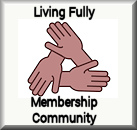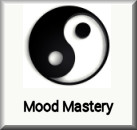I have just completed a singles (or those who are single again) group called, “Getting Ready for a Great Relationship”. As a single, You may wonder why you attract the same kind of relationship that does not work for you, where it starts out great and ends in pain, time after time. The information in this course will help prepare you to succeed at finding a match you will be happy with. This course focuses on you; at your relationship history, looks at your attachment style, looks at your personality preferences and much more. This knowledge helps singles to understand how their relationships failed in the past and provides a new map to follow in choosing well in the future. Marrieds, if you know someone who might benefit from this four-week set of webinars held on a Wednesday night at 8:30, beginning March 5th or you or they would like more information, please have them connect with me at (lynda@lyndachalmers.com) and I will answer any further questions. The cost for the set of seminars is $97.00. The course was so successful we are doing it again using the same format.
Here are some comments:
*After the first session, “Just want to let you know that initially I didn’t think that I would get much from this but I have already!”
*”There is a lot of really good information. One of the things that stuck with me that you mentioned in the last class and is in this weeks homework is with the self esteem – You have to live in such a way as to be able to esteem yourself. Sometimes just one sentence can have so much meaning.Thanks for all of your valuable info to help us all move forward!”
*”This information explains so much about my past relationships. A lot of it makes sense now.”
If you or you know of some singles who might be helped by this course, please let them know that the course is 4 sessions long and is a live audio over the internet. The course begins soon – on March 5th! I am actively taking enrollment for the course now, so I hope you will do me the favour of passing the information on.I appreciate you partnering with me in helping to get the information out there!





